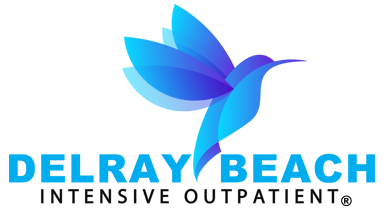One of the less recognized aspects of addiction and the havoc it can wreak on the physical body is the way in which it affects nutrition and eating habits. First, as you do probably know, people suffering from severe addiction will often appear malnourished.
This is because many drugs of abuse suppress appetite, which leads to something called primary malnutrition as addicts simply do not get enough to eat because they are more concerned with getting high than eating.
Opioid abuse, for instance, can reduce appetite as well as cause chronic constipation that can make eating painful. Then, someone who is wired on stimulants may not feel the need to eat at all while their body is in fact burning more calories than usual due to an amped up metabolism, though they may end up binging when hunger returns as they “crash.”
Some drugs can also interfere with the body’s ability to digest and process food, which leads to what is known as secondary malnutrition. Alcohol, for instance, can interfere with the absorption of nutrients by damaging the liver and pancreas. This has the potential to cause effects as frightening as irreversible brain damage in Wernicke-Korsakoff Syndrome, which is caused by a deficiency of thiamine or vitamin B1.
Benzodiazepines have a similar anti-absorption effect on several nutrients, while abusing marijuana could also affect weight in a way that is potentially damaging to health if a habitual smoker packs on the pounds giving into the munchies.
Add to all that the poor eating habits that could be fostered by the poverty that is often associated with addiction if addicts are unable to hold a stable job or are spending the bulk of their income on substances rather than food, and we have yet another contributing factor to malnourishment among addicts.
Thus, it’s no surprise that recovering addicts are often found to be deficient in micronutrients, with one study suggesting that over 70 percent of them were deficient in Vitamin D and C and 50 percent were deficient in iron or another vitamin. Other nutrients that addicts have often been found to be deficient in are Acetyl-L-Carnitine, B vitamins, calcium, and omega 3 fatty acids, all of which are vital to proper body and brain function.
This malnourishment could endanger addicts by further weakening an already taxed immune system, and has been shown to potentially worsen mental health disorders like depression and anxiety, which in turn could drive even more drug abuse or serve as an impediment to recovery.
When addicts do begin recovery, they also may find it hard to regulate their food intake, potentially mistaking reemerging hunger for substance cravings if they are not in the habit of eating regularly or trying to assuage substance cravings by switching to overeating.
For this reason, Delray IOP’s comprehensive intensive outpatient program includes a weekly Nutrition and Lifestyle group to help educate clients on the importance of nurturing and repairing their bodies through healthy eating. Our nutritionist will also work with each of our clients individually to help them design a healthy meal plan suited to their bodies’ unique needs.
Things like eating three regular balanced meals a day, eating real nutrient dense food as opposed to over processed “empty calories,” and keeping up with any necessary vitamins and supplements are important for all of us if we want to stay at the top of our game health-wise. But they are even more critical to recovering addicts as they seek to regain physical and emotional equilibrium during the vulnerable moments of early recovery.
How to properly fuel their bodies is just one healthy coping mechanism that our clients learn in our intensive outpatient addiction treatment program, which also includes the guidance of professional therapists and activities designed to foster holistic healing. To learn more about our program and about Delray Beach IOP, call 833.637.033 anytime.
